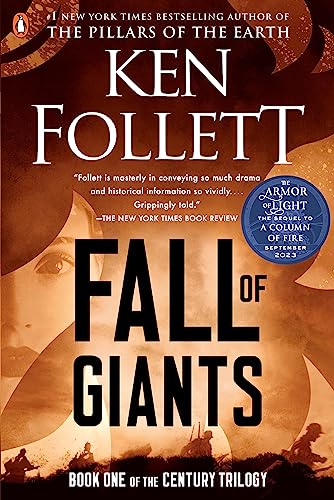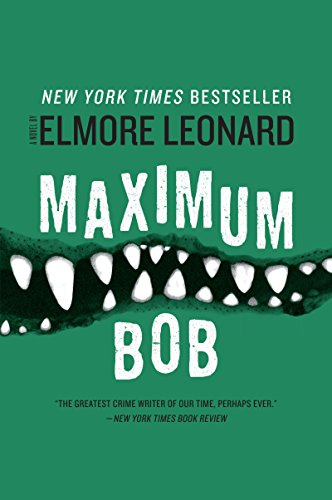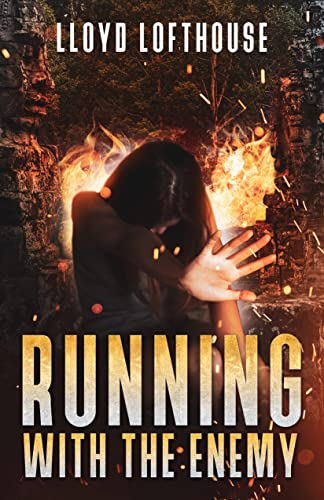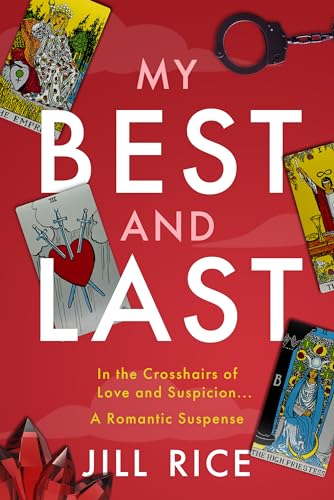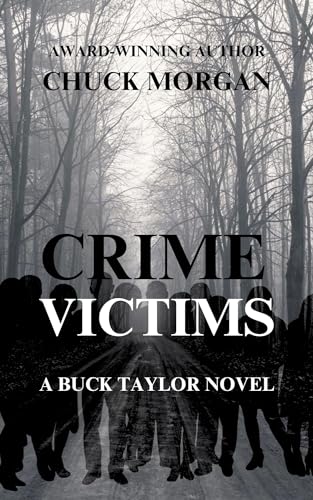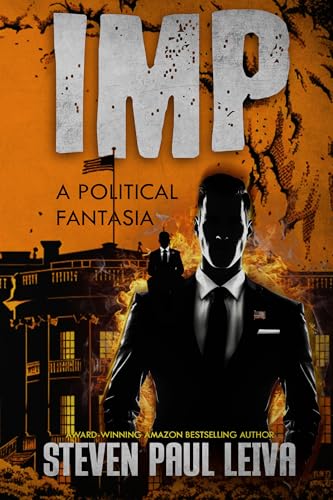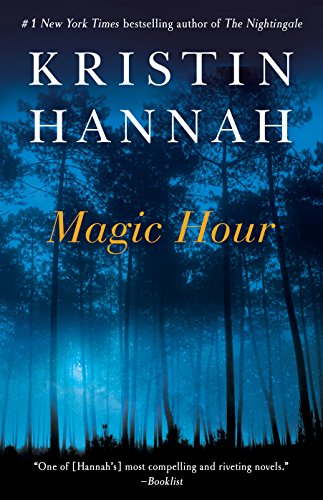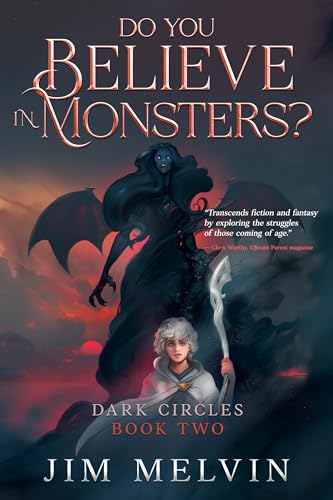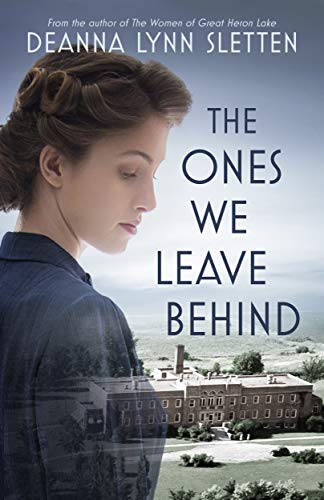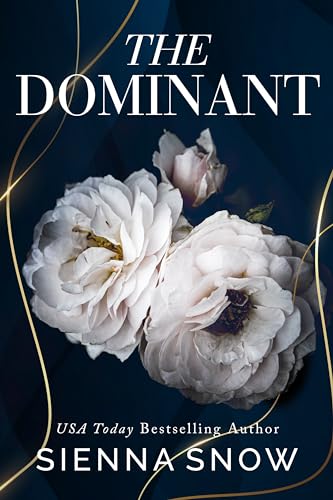“…A legal thriller at its best…phenomenal characters…extremely well-crafted…”
Carefully researched and vividly evoked, FORTUNATE SON is an unforgettable work of fiction based on fact — a powerful epic where nobility, love, courage, revenge, honor, and treachery abound. And at its center is the most momentous trial in Irish history…
Don’t miss this grand adventure while it’s just $1.99 — that’s 80% off the regular price!
Fortunate Son: A Novel of the Greatest Trial in Irish History
by David Marlett
Meet James Annesley, son of 18th Century Ireland. Though you may have never heard his name before, his story has already touched you in profound ways. Now, for the first time, novelist David Marlett brings that incredible story to life.
Stretching from the dirty streets of Ireland to the endless possibilities of Colonial America, from drama on the high seas with the Royal Navy to a life-and-death race across England and up the Scottish Highlands, from the prospect of a hangman’s noose to a fate decided in the halls of justice, FORTUNATE SON is a powerful, relentless epic. Here nobility, duels, love, courage, revenge, honor, and treachery among family, friends and ancient enemies abound. And at its center is the most momentous trial in Irish history – the trial of Annesley v. Anglesea from which our modern “attorney/client privilege” was forged, and our concept of a “jury of one’s peers” was put to the test.
Carefully researched, vividly evoked, and lovingly brought to the page, FORTUNATE SON is an unforgettable work of fiction based on fact, one that will resonate deep within you long after you finish it.
5-star praise for Fortunate Son:
“…David Marlett…does a masterful job at combining well-researched fact with enticing and passionate…fiction…”
“…everything a great adventure tale could hope for — colorful characters, danger, suspense, bravery…high stakes courtroom drama and of course, great loyalty and love….”
an excerpt from
Fortunate Son:
A Novel of the Greatest Trial
in Irish History
by David Marlett
CHAPTER 1
Every man has three names:
One his father and mother give him,
One others call him,
And one he acquires himself.
— Anonymous, 17th Century
Sunday, November 16, 1727
Lord Arthur Annesley, the Sixth Earl of Anglesea, was slopped. He had been sitting alone at his oak table in the dark back corner of the Brazen Head Tavern since half-past ten that morning. Now, nearly five in the evening, he could hear fresh rain blowing across Dublin’s Merchant’s Quay, tapping the tavern’s windows, dripping heavy in pools along Bridge Street. He was floating, his white wig askew, his fat fingers tracing the blood groove of his gold-hilted rapier lying on the table. “He’s mine, he is,” he muttered to no one. “B’god, James is mine! So he is. She’ll never take him to England.” He glanced up with his one eye, the other having been long ago shot out by his wife’s cuckolding suitor. “My son’s mine,” he boomed. “Damn you all!” A violent cough overtook him until finally he lowered his chin, rivulets of perspiration trickling down his brow.
“‘Tis well known, me lord, James is yer son,” the tavern keeper offered. “Would ye like another?”
“Ney!” Arthur shook his head, muttering, “No more boys.”
“Ach nay, me lord—would ye like another pint?”
“Ha! Ney, Keane. Best be on m’way.” He stood shakily, steadying himself on the dark wall, sheathing his rapier.
“Well den, g’night sire,” the keeper said, gesturing with his bar towel. Arthur tapped the wrinkles from his blue Italian cocked hat. “Keane?” “Aye, m’lord?”
“What be the cure….” He stumbled sideways, trying to buckle his sword sash. “What be the cure for a hangover? I’ll wager you don’t know.”
“Sleep, most likely,” Keane answered, moving across the small room, delivering a dram to a large man sitting alone. “What do ye think, sir?” he asked the man.
“I have no reckon,” the man muttered, his Scottish brogue rumbling low. “Leave me be.”
“I suppose a pinch o’ snuff might do ye, Lord Anglesea,” Keane guessed, wiping his hands on his apron.
“Ney, goddamn you, Keane!” His words a lather of grumbled mush, his arm a terrier in a fox hole, fumbling through the twisted coat sleeve. He spun, shoving his hand through. “I knew you didn’t know, you damn thievin’ Irishman. ‘Tis t’ drink again!” He staggered backward to the door. “That be the cure, b’god!”
“Aye, me lord,” said Keane. “So I’ve heard.” Now the Scotsman was standing too.
“T’ drink again!” Arthur bellowed, throwing his arms up. “T’ drink again, ‘tis all you need!” Turning, he careened through the doorway, along the rickety boardwalks, lurching into the muck of Bridge Street. “‘Tis all I need!”
A large hackney coach pulled by six horses was crossing the Father Matthew Bridge, gaining speed in the pelting rain. The horses snorted against the driver’s whip as he yelled from the box, his cloak flailing in the wet wind. “Up with ye curs! Now! Up! Up!” Again and again he cracked the long leather across their backs. The loud roar and stirring commotion of the coach and six easily cleared traffic from the bridge, opening a wide swath up Bridge Street beyond, like a plow cleaving mud. When the horses reached the quay on the far side of the River Liffey they were pulling so hard and running at such a blaze that all four wheels left the ground before crashing back to earth to spin in the slurry sludge. Galloping past the Brazen Head Tavern, with nostrils flared and eyes mad wide, they would not and could not stop for anything in their path.
Against the whir of voices the ale had loosed in his head, Arthur heard charging hooves, people shouting, and through the stinging rain, he saw a maniacal blur rushing him. But he couldn’t move. A black surging wall, yet he stood, stammering something about God. Finally one step toward the side, but it wasn’t enough—the violent impact threw him back and down. Twenty-four hooves thundered over him, snapping his right leg like straw, driving it into the thick mud. Another hoof trampled his gut, his ribs shattering. Instant fire. Then the coach hit him, the splinter bar catching his chin, the front axle crushing his larynx, cracking spine, whipping his head into the path of the rear wheels which slammed over him, mashing his face into the filth and black ooze.
His one eye fluttered open, stinging, but he couldn’t breathe. To one side he saw muddy boots and spurs—some standing, others moving away. His bloody mouth sagged, convulsing for air. He felt warmth trickle from his ears. Life abandoning him. Then, between the clamoring shouts and splashes, he heard the massive bells of Christ Church Cathedral begin their solemn peal, announcing the time. He stopped moving, and there in the shadows of his mind he saw James, no more than five, standing on a rocky hill, laughing, the sea air tousling his auburn hair. Suddenly James sprinted off, through an emerald field, clambered over a low stone fence, then raced on, away, toward a man who was waiting, watching—a man Lord Arthur Annesley, the Earl of Anglesea had never been.
CHAPTER 2
But know, thou noble youth,
The serpent that did sting thy father’s life
Now wears his crown.
— Hamlet, William Shakespeare, 1601
Two days later the birds fell silent in the churchyard of Christ Church Cathedral, leaving only the heavy steps of shiny boots and shoes amidst the light clanking of silvery mourning swords and the rustling of somber fabric. Led by the priest and the cross, the clergy began a slow procession from the lich-gate at the churchyard’s north end. Behind them, six men covered in dark grey frocks filed forward, lifted the mahogany coffin from its table and joined in step.
James Annesley, twelve years old and now the Baron of Altham and Earl of Anglesea himself, slowly followed, studying the path before him. A gust whipped his black hat and he snatched it back, covering everything but his tail of hair. He glanced across the crowd of no fewer than three hundred gentlemen and ladies shuffling along, awash in their black linen suits, heavy silk dresses and respectfully short ruffles. The women were suitably dour, a collection of black gloves and matching crepe handkerchiefs, hair pulled high under dark bonnets of silk. He could see the eyes of the men, a mass peering from under silver-ribboned cocked hats, white wigs and furrowed brows. They were fixed on him like the luminous piercing eyes of black cats, studying him, judging him.
A woman in a full veil was standing apart from the others, fidgeting. For a moment Jemmy thought she might be his mother—but of course she was not; this woman was too short, too heavy. Besides, his mother would not be there. Although his gaze dropped back to the path before him, he was too late to see the upthrust edge of a flagstone. His toe caught it and he stumbled, one foot across the other and down, smashing into the legs of the rear pallbearer. The man’s knees buckled, he lost his grip, and the coffin shifted violently back. Thud! The sound echoed from within the coffin as the bearers struggled to keep it from hitting the ground. Jemmy sprang to his feet, his freckles lost in blush, imagining his father imperiously jostling about inside the box. As the bearers recovered their grips and solemn composures, the priest slowly proceeded forward, never hesitating in his recitation: “I know that my Redeemer liveth, and that he shall stand at the latter day upon the earth….”
Regaining composure, Jemmy focused on the back of the coffin. His father was finally dead, killed just two days ago, crushed by a runaway coach. He had heard it was murder— “A blood-damned, godless Catholic killed him!” But it could have been anyone. Who had not hated Arthur? Everyone had their reasons. Some had tried before. Even Jemmy—or at least he had thought on it. The man had been vile—a meanness that had enveloped Jemmy for so long that he was now calm, relieved the rage had been silenced under the booming hooves of six horses. The storm of the man had ended, the thunderclaps subsided, the torrential rain now dry. Relief. That coolness he felt in the hollow of his stomach was a certain contentment, the settled knowledge that the evil was gone, never to return.
But where one weight was gone, now another hovered, waiting to be assumed. Jemmy was the new Earl of Anglesea, the English owner of over fifty thousand Irish acres, four thousand more acres across in England, a member of both the Irish and English Houses of Lords—he had no idea what that meant for him. Where should he go? How to act? Could he remain friends with Seán, the son of Fynn Kennedy, a Catholic laborer? And what of Jemmy’s mother? Could he now go live with her? Even on to England? She had not come to him in over two years—would she want him? He watched his shoes glide back and forth. Why didn’t she come to this funeral? Even just for him. Yet, if she had, what would he say? He didn’t want to talk to her or anyone else. Except Fynn Kennedy who now joined in step beside him.
Nothing felt more right. Though his father was lying in that coffin, the only man who had ever treated Jemmy as a son, who had ever loved him, was walking by him now, upright and proud, wigless hair tied back, jaw set, crescent eyes warm, one big hand on Jemmy’s shoulder. Even though Fynn was Catholic, Jemmy knew the man would remain by him today, no matter the aristocratic grumbling it caused. The warm hand on his shoulder gave him strength, as if chain armor, as if it were the hand of Sir Lancelot on Sir Galahad’s shoulder, the hand of valor, strength. Although Fynn’s son, Seán, thought Sir Lancelot was the best knight, Jemmy knew the best was Sir Galahad—the young one, the only one who had found the Holy Grail, found it glowing in the belly of a ship. He wished he could find something like that. Another wind-burst snapped his state away, and he returned to the bleak churchyard, the cold people.
Behind the peerage, a small gathering of commoners had gathered along Fishamble Street. They too were in dark clothes, though mostly in browns and grays, with no wigs nor swords among them. These were the Catholics, no more welcome than Fynn, particularly at such a noble Englishman’s funeral. Among them was Juggy, soon to be Fynn’s wife. As Jemmy saw her, she caught him with her empathetic eyes. He gave a slight smile, pleased she was there. Beside her was Fynn’s giant cousin, John Purcell, with his wife and their two young daughters, pulled in so close that they were almost lost in their father’s enormous gut. To Jemmy they all seemed lost, uncomfortable. He wished they would just go back to their homes, back to whatever they were doing, back to their happiness. And just past the Purcells was Seán. He was hopping on one foot, tugging irritably at his brown coat. Jemmy watched him, longing to simply step out of the damn procession, cut across the yard and run down Fishamble Street with Seán. To run away. To disappear. Seán could give him that, that most precious of gifts, the gift of invisibility, the gift of vanishing into the Dublin streets.
The priest’s droning faded in Jemmy’s head. He looked up. There was no rain, no sun—only the low, spit-grey clouds of November clinging to the morning sky. Its hazy light draped the stones of Christ Church Cathedral, engulfing the high buttressed walls, throwing faint shadows across the Four Courts of Justice which adjoined the church’s north side. The march slowed now, approaching the chapterhouse, which joined the Cathedral to the Four Courts. He expected the procession to turn there, to enter the church’s nave through the side door, but instead the priest led the group to the left, toward Skinner Row, toward the far side of the Four Courts. “Where’s he going?” Jemmy whispered.
Fynn leaned down. “I suppose t’ enter ’round off the lane. No doubt these nobles can’t squeeze their arses through that transept.”
“‘Tis the long way, ‘round the courts.”
“Aye, so ‘tis, Seámus,” Fynn said, addressing Jemmy by his Irish name. To Fynn Kennedy, Jemmy was not Jemmy, not James, not Jimmy, not barely an Annesley, not the Baron of Altham and certainly not the Earl of Anglesea. He was Seámus. And that was that. Seámus he had been since birth—Seámus he would remain. Their bond had formed over the years at Dunmain House in Southern Ireland, where Fynn had served as the Annesleys’ stablemaster. But that service ended upon their move to Dublin a year prior. Fynn had been summarily turned out without even the bother of a fictive explanation.
According to Juggy, it was because Lord Anglesea had overheard Fynn teaching Irish Gaelic to Jemmy. They had all denied it of course, Jemmy the loudest. But the truth was he had learned much more Gaelic than just his own name. He was now fluent in the illegal language.
The priest paused to adjust his peruke wig, now flopped across his slumped back, then resumed recitations from the Book of Common Prayer for the Anglican Church of Ireland: “We brought nothing into this world, and it is certain we can carry nothing out. The Lord gave….”
As the group moved along Skinner Row, Jemmy looked up at the court building. He and Seán had often played here in the passages and the churchyard. They had sat on the stone steps leading up from Christ Church Lane watching the comings and goings of the high-wigged solicitors, chained criminals, justices of the peace, and other curious-looking people. But he had never paid much mind to the old court building itself. Nor had he ever thought it odd that it was built on the cathedral’s grounds. Stretching up above him, the court’s tall narrow windows were cracked and moldy, most threaded with lead latticework, the track marks of numerous repairs and fragile attempts to keep out the rain. Squinting his sea-green eyes, he noticed the parapet along the roofline was crumbling in places, the grey sky seeping through the eves.
Once inside the church, the procession continued into the drafty nave to where the coffin was laid on a stone table before the closed chancel screen, below the pulpit with its imposing canopy which appeared to rise out over the people. The clergy turned and waited silently for the laity to slide into their pews. Jemmy picked a pew in the center of the nave, scooting down the long wooden stretch until he came to the outer edge. Fynn eased in beside him, patting him firmly on the knee. The priest had climbed the rounding stairs and was now wobbling in the pulpit. “I will take heed to my ways, that I offend not in my tongue. I will keep….”
Immediately next to the end of Jemmy’s pew was a black marble tomb shaped in the effigy of a medieval warrior. He studied it, cocking his head to read the inscription: Richard de Clare, Earl of Pembroke, STRONGBOW, 1176. And beside Strongbow’s tomb was another one, though much smaller. Silently, he read the faint letters inscribed in its base:
O graceless son, who left thy sire,
Amid the battle’s din;
And the same moment, turned thy back
On Country, Kith, and Kin.
‘Tis his son there, the one he cut in half for running away from battle! He knew the story well but had never seen these tombs. The small one wasn’t short because it held a child; it was short because it held only half a man, a young warrior killed and forced to lie forever beside his father, the very man who had sliced him in two. Suddenly a dreadful idea came to Jemmy as he stared at his own father’s coffin, panic paling his face. Glancing over, he saw the reassuring glimmer in Fynn’s narrow eyes. Please God, let them bury me next to Mr. Kennedy. Or anywhere so long ‘tis far from this cathedral, far from Da.
The tombs of Strongbow and his half-son lay in the bay of a stone arcade that ran the length of the nave. Toward the top of the nearest column the stone arched up and over and down to the next column. Looking up, Jemmy saw the lower arches supporting higher levels of stone arches which in turn were hoisting the high vaulted ceiling—pushing it back to God, curving it out into the open air, denying gravity, tempting fate. The house of serendipity under the ceiling of castigated chance. The priest coughed slightly mid- phrase. Jemmy leaned close to Fynn. “Did he know Da?” he whispered.
“Who, lad?”
“The old priest.”
Fynn shrugged. “I don’t know. Perhaps so.”
A cold breeze drafted across his feet. He watched the ancient man, studying the movement of the thin lips. “…shalt prepare a table before me against them that trouble me. Thou hast anointed my head with oil, and my cup shall….” After the prayer, a cool, echoing silence fell through the cathedral, interlaced with an occasional cough. No weeping. Not even a sniffle. But was he supposed to cry? He clenched his teeth, trying to feel sad. Was he lacking something, some care? Was he devilish, cold hearted? Was he just like his father? A devil? A gargoyle of a man. Did the priest know that man in the coffin had been a devil? Was his father still a devil, even after death? Maybe he should yell at the priest: You’re burying a devil, don’t you know! Maybe his father should be buried outside, not in the crypt of this cathedral, not below where Jemmy now sat. He had been to church a few times since they had moved to Dublin, but always to St. Patrick’s Cathedral, and the dean at St. Pat’s, Dean Jonathan Swift, was much different than this codger. Dean Swift told them how loving and caring Christ was. Jemmy looked again at the coffin. There lay mortality. There in that mahogany box lay his father, wrapped in death clothes, his fat head pushed against the coffin end. If Dean Swift was right, if Christ did die for everybody, was his father in heaven now, devil or not? Jemmy chewed his bottom lip, glancing away, up, anywhere. Dean Swift told stories about Lilliputians too, didn’t he? Were Lilliputians in heaven? Or did they go to some other heaven, a much smaller one?
Retracing the arches down to the tops of the massive supporting pillars, Jemmy’s wide eyes found others looking back. Circumscribing the summit of each column was a series of faces with deep-carved, stone eyes—forever beautiful, staring blankly at the nave people. A man in pensive gaze, an old man wrinkled and withdrawn, another much younger, frozen on the verge of speaking. Then he saw her. Almost directly above him was the face of a beautiful maiden, her head wrapped in a death shroud. Or was it a scarf to keep out the cold? Different from the others, her eyes were closed. The others were all peaceful men, noble faces, the old, the young, all with open eyes, all looking right back at him. And the lady’s face was graceful, not threatening or warning, yet her closed eyes bothered him. Why couldn’t she look at him? Did she not want to see the people there, not want to see him? She was welcoming yet still hidden. Was she dead or just sleeping? Suddenly, in his mind, the carving began to transform, swelling, trembling, struggling and flexing against its stone bindings. Then it became a living face—the face of his mother. Tears welled in his eyes as he silently pleaded, Mother, where are ye? Where are ye? As quickly as she had appeared, Mary Sheffield faded back to grey stone, the flesh hardening, the eyes closing. She was gone.
“Seámus.” Fynn touched Jemmy’s shoulder, whispering. “Seámus, m’boy, ‘tis time for ye t’go. Up t’ the altar.”
Jemmy wiped his hot cheeks with the back of one hand as he stood, slipping into the aisle. He reluctantly walked to the front. Behind him he heard deep murmurs, but no distinguishable words. As he stopped at the coffin, a clerk took his arm, leading him to one side. People began to course by, men unknown to him, greeting him as the new Earl, calling him lord, saying things in memorial about his father, a man they had surely never known.
~~~
Thirty minutes later, the eight bells of Christ Church Cathedral began their dirge, shaking the brisk Dublin air. Emerging up from the crypt, Jemmy walked up and out, into the light, beyond the stone columns, past the cold faces, through the door of the south transept, and out into the churchyard. The throng of the elite, the spectators, stood about, clustered in dark little pockets of self-appointed supremacy. To Jemmy they were more like clumps of black peat. The sun had broken through the grey sky at last, and Jemmy squinted trying to spot Fynn.
“James Annesley!” a voice thundered.
“Aye?” Jemmy looked up, shielding his eyes from the brightness.
“Just what do you think you’re doing here, knave?” The man was advancing on horseback, two other horsemen close behind.
“What business do ye have with the lad?” Fynn was at Jemmy’s side. Jemmy could now see the man, mounted high, haughty and proud, the angular face scowling down at them. He saw the man’s gold cravat, cropped wig, blue three-corner hat. Nothing dark, no mourning clothes. The only black was in those eyes.
“My business is none of your concern, stable boy,” the man growled at Fynn. “Remove your nasty heretic arse from this holy yard.”
“B’God ye’d best declare yerself, if ye wish t’ survive yer tongue!”
“A challenge!” The man spun his spirited mount on the churchyard turf, the hooves spattering wet clumps of mud on Fynn and the people crowded around.
The big Irishman, John Purcell, charged, brandishing a walking stick. “Get yer English arse down!” His guttural boom reverberating off the stone walls. Just as quickly, the other two Englishmen spurred their mounts toward him. Shouts and neighing erupted in Jemmy’s ears. He stepped back from the commotion, seeing the glint of a steel scabbard, hearing the ring of a blade slipping free. Silence descended. Everything stopped. Except the bells which continued their tolling far overhead. Fynn was once again beside Jemmy, John Purcell was being held back by the tip of a rapier, and Seán was standing wide-eyed on the far churchyard wall.
“Now,” began the man. “Now that you’ve closed your Catholic gobs, I’ll speak t’ the young runt.” Infused with anger, a hint of brogue slid through the man’s efforts to maintain his English composure.
Juggy stepped forward, clasping Jemmy by the elbow. “What do ya want with the young lord? He’s just buried his father, so he has. Tis that not enough? Or didn’t ya know?”
“Aye, so he’s just buried his father.” The man smirked, lowering his voice to a whisper. “But what do you know of it?” His lips curled to a grin. “I am the corpse’s brother.”
“Richard Annesley,” Fynn said, reciting the name flatly.
“M’da has no brother,” Jemmy said. “He—”
“Aye, but he did, Seámus. He did indeed.” Fynn was slowly advancing. “So Richard, where’s yer black beard? Or aren’t ye hiding behind no more?”
“Stand back!” Richard drew his pistol, cocking it. “Stand back, Irish cur!”
Fynn stopped, then raised his arms, smiling. “Wouldn’t want t’ be upsettin’ ye. Ney. That wouldn’t do—now would it? Considering how upset ye must be over the loss of yer dear brother.” Richard shifted in his saddle, but kept his aim steady. “Let me think on this,” Fynn continued, now feigning contemplation. “If I be right, ye’ve come t’ claim the title and property of the Earlship for yerself. Aye?” He turned, patting the rump of the horse beside Richard. “And this here must be the arse of Captain Bailyn.”
Bailyn jerked his horse around. “Get yer b’deviled hand off m’horse!” He spat at Fynn through two crooked yellow teeth. His thin face was pale, unshaven, smallpox scarred.
Fynn smirked. “Good God, Bailyn, ye’re more ugly than last we saw ye.”
Richard motioned Bailyn back. “Kennedy, the boy is a bastard. Ye know ‘tis so.”
“I am not!” Jemmy burst.
“Ye say he is, do ye?” said Fynn. “Of course ye do.”
Juggy stepped in front of Jemmy. “So whose child ya say he is?”
“Ah, m’lady,” Richard began. “I’d think you’d be the Betty t’ answer that.” Juggy’s face tightened, her cheeks growing red.
“Damn ye!” Fynn erupted. “I’ll not stand for yer insults against the lady or the lad.”
“Lady, say you?” Richard spurred his horse sideways, placing his pistol against Fynn’s temple, knocking off Fynn’s hat. “I told you, maggot, step away.” As Fynn took one deliberate step back, Richard grabbed Juggy by the collar, dragging her to his saddle, pressing her smooth face against the leather. He leaned down to her ear, his eyes and pistol still aimed at Fynn. “As you’re aware, I speak true when I say the knave is the son of a whore. Aye, Mistress Mackercher?” He released her with a slight shove.
As Juggy stumbled back, Jemmy charged. “Ye’re not my uncle! I have no uncle!” Just as he bolted by the third horseman, the man kicked out a spur, slicing Jemmy’s right cheek, knocking him to the mud. He clutched his jaw, blood streaming through his fingers. Juggy was to him but he was already on his feet, backing up, refusing her, glaring at everyone.
“Now hear me, all of ye!” shouted Richard, straightening in his saddle. “This bastard boy goes by the name James Annesley, claiming to be the son of the widow Mary Annesley, once Lady Anglesea. But as you all well know, my brother was a drunken whoremonger and this boy is but a whore’s son. He is a charlatan. An imposter and a liar. I am Lord Richard Annesley, the one and true Earl of Anglesea. And so help me, I’ll hang the one of ye who says otherwise.” He pointed his pistol at Jemmy. “Starting with you.”
Jemmy stared back, eyes narrowing.
CHAPTER 3
Alas, my Love! Ye do me wrong
To cast me off discourteously;
And I have loved ye so long,
Delighting in yer company.
Greensleeves was all my joy,
Greensleeves was my delight;
Greensleeves was my heart of gold,
And who but Lady Greensleeves.
— “Greensleeves,”Anonymous, 1581
Misty fog, aglow in the morning’s half-light, settled over St. Stephen’s Green, the vast open land on the western edge of Dublin. In a remote corner a meandering creek murmured along, slicing through a pale meadow, dividing trees—trees which sheltered the moist grass and the damp rocks which had tumbled from stone walls overgrown with ferns. It was early, yet the blackbirds were already beginning to fuss and caw. Time crept by, as had the five months since the funeral dirge that continued to play. Jemmy was sitting against one of those enormous oaks. He was focused, his mouth agape, the pink scar etched along his right cheek pointed to his hands where he was trying to count the legs of an orange centipede—he had not made it past seventeen. He would get the poisonous creature to cling to a small stick, its crittery back coiled into a tight ball. Then he would start counting. But whenever he would get to about seventeen, the vermin would uncurl, crawling quickly to the other end of the stick. With no desire to hold the thing, he would quickly invert the stick and begin counting yet again. “Ah, ye little turd,” he whispered as it touched his hand, spawning a cold shiver. Hearing the sound of someone approaching, he peered around the trunk. It was Seán ambling toward him, carelessly swatting bushes with a sapling stick. “Seán!” Jemmy stood, his filthy wet clothes sticking to him. “Look at this!” Just then the centipede raced across his hand and up his arm. Jemmy shouted, flinching, whacking his chin with the stick, hurling the creature high into the tree.
“M’God! Get it off me!” Seán was immediately screaming. “Get it off me!”
Jemmy raced around the giant oak to see Seán writhing on the ground, kicking and swatting at the empty air, demon-possessed, wild-eyed and scared. “What’s at ye?” Jemmy shouted. An orange flash tumbled from Seán’s waistcoat, scurrying for cover under the leaves.
Seán didn’t stop. “‘Tis bitting me! ‘Tis killing me!” He kept thrashing.
“Stop, will ye! Take in some air! ‘Tis gone!” Jemmy suppressed a grin.
Seán was panting, his round face pink, blue eyes wide. “Jumped on m’face!”
Jemmy helped him up. “‘Twas nothing Seán. Nothing.”
“Nay, ‘twas something big!” His hands wriggled over his head and chest. “Ye see it?”
“Perhaps just a little—” His mouth creased into a grin.
“‘Twas nasty with big teeth! Fangs! Fangs, Jemmy! I saw ‘em, I did!”
Jemmy was fighting back tears of laughter, struggling to keep control. It was nearly unbearable—Seán’s terrified face and one orange centipede running scared.
“It had a million legs, it did!”
That was it. Jemmy roared with laughter, stuttering, “I’m sorry, Seán. Did m’best. But I counted only seventeen!” Then the dam broke and he dropped to his knees, lurching forward to the ground, giggling hysterically. Sean stopped and stared, totally confused, which only made Jemmy laugh harder. Finally Jemmy settled, feeling the cut under his chin. “So? Did ye bring me some food this mornin’?”
“Da wouldn’t let me,” Seán mumbled.
“Why not?” Jemmy soured rapidly at the thought of no breakfast. His jaw may have ached a bit, but his stomach burned.
“Said ye’re being mule-headed to stay here. Said there’s no reason to stay away from him. Ye aren’t protecting nobody out here, least not yerself. Said ye should come back t’ Mr. Purcell’s.”
“I don’t care what he says,” Jemmy blurted. Silence hovered and they sat in it, motionless, watching a man canter his horse across the far end of the green. The beast’s snorts steamed in the early air. “If I’m there at Purcell’s, that fathead Richard and his men will come. I know it. I’ll stay hidden till this is gone.”
Seán pulled himself to his feet. “‘Tis not going t’ just pass, I don’t think.” He walked a few paces to the creek bank. Swollen gusts whipped the leaves above, and a few wrens and yellow-winged hammer birds began to fill the morning with warble and echoing song. “I miss Dunmain.”
“Aye,” said Jemmy. They were thinking of the Annesleys’ country estate in southern Ireland, the land where both he and Seán were born, where they had played the first ten years of their lives. Seán was born in the servants’ quarters, the son of the stablemaster. Jemmy was born in his mother’s bedchamber, one of the twenty-eight rooms of the lavish Dunmain House. Jemmy longed for the rolling green hills, the forests, the long stone fences, the random ruins and ancient abbeys lying in wait to be discovered. But he did not miss the house. The immense, cold house held a trove of bad memories—his father beating him, his mother leaving.
“Jemmy!” Seán blurted. “Look at this!”
As Jemmy stepped beside Seán, his eyes followed Seán’s outstretched finger down toward the creek. Lying half-exposed in the slick clay was a human skull, peering back at them, peering up into the world, neither entering nor departing, the crown cracked slightly, polished white by water and sun. “M’soul!” Jemmy whispered, staring into its dark eye sockets. “Who do ye think it is?”
“Probably Friar O’Conner.” Seán smirked. “After a night of ale. ‘Tis begob.” Jemmy’s smile rolled into a chuckle, imagining the old, fat friar falling drunk into the creek. But the skull just stared back. Sean became serious and whispered, “Da says there’s bones of Celtic giants buried in Dublin. All ‘round us.”
“Ye think this is one of Cuchulainn’s knights?”
“Maybe.”
“Perhaps, Seán,” whispered Jemmy, “‘tis Cuchulainn himself.” Both boys plopped down on the bank, smiles dissolving, bright eyes warily returning the solemn stare of the great mythic giant.
“Nah,” Seán said, recovering, shoving Jemmy. “Can’t be. ‘Tisn’t big enough.”
“Ye never know. Maybe ‘tis.” The skull made Jemmy feel strange, knotting his stomach. The stone image of the woman in Christ Church flashed in his mind—the bright effigy bursting upon him, white-hot light, then gone. Rolling to his back, he stretched his lanky legs across the grass and surveyed the living green rippling overhead. Flashes of distant cyan and white-blue glinted through the calico canopy, dropping down in wispy slants of gold that illuminated the boys below. Closing his eyes, he soaked the light in, the soothing coolness. Soon he began absently humming a tune that he loved, that haunted him. He could hear his mother’s delicate voice caressing him with it:
Greensleeves was all my joy,
Greensleeves was my delight;
Greensleeves was my heart of gold,
And who but Lady Greensleeves.
“What are ye going t’do?” asked Seán. At that moment, like the aimless tune adrift, an indifferent emperor moth floated gracefully over their heads. Jemmy watched it, enchanted. It was a brilliant apparition, gliding, flicking its wings, disappearing as magically as it had arrived. Seán pressed on, breaking the spell, “Will ye go away with yer mum, now that—”
“What’ll I do?” Jemmy grinned. “I’ll put that skull on a stick and chase Juggy with it!”
“Ye know I wasn’t talkin’ about the skull. I meant—”
“Juggy’d forgive me. She’d beat yer measly arse, but she’d forgive me.”
“Ye’re a wee prick, ye are!”
Though Jemmy was only twelve, soon to be thirteen, he understood why the local men teased him about Juggy. Joan Landy, “Juggy,” once the Annesleys’ kitchen maid, had wet-nursed young Master James. Some of the cruder men had implored him to recount the experience, at which he would bolt away. Nevertheless, he loved Juggy like a mother and knew she treasured him in return. Indeed she showed him more concern than anyone else did, except maybe Fynn. She laughed with Jemmy, teased him, listened to him when he needed to talk. And though he adored Juggy, he knew his mother, Mary, flatly despised her, referring to her as “Madam Mack.”
Juggy grew up with her brother, Daniel Mackercher, in an Edinburgh orphanage. When she was older she moved to London to serve the estate of Jemmy’s maternal-grandfather, John Sheffield, the First Duke of Buckingham, working in the bowels of the Duke’s new palace which he had only recently constructed. There she was taken in by the Landys, also serving the Duke. Hungry for a family to call her own, she took their surname, leaving Mackercher far behind. When Arthur and Mary were married, Joan Landy came to Ireland as part of the Annesley household. She had served them ever since. As far back as Jemmy could remember, a prattling of “lil’ Scotty lass” tales and “Miss Juggy” stories had been bandied about. The one he heard most was when Juggy first arrived in Ireland, how she had been seen secreting about with his father. He was not sure what “secreting about” meant, but no doubt that was why his mother hated her so much. Perhaps it was the same “secreting about” rumored between his mother and a tanner named Palliser — his father sliced clean the man’s ear, who in turn took out Arthur’s eye. He would ask his mother, thought Jemmy. Someday. When he saw her again. If he ever did. No, he would ask Juggy. Juggy would tell him the truth.
“Ach.” Seán’s voice was tight. “Will ye be going away with yer mum, or won’t ye?”
Jemmy sighed, rolling his eyes. There was no escaping Seán when he had an unanswered question, especially about Jemmy’s mother. Seán’s mother was Margaret Kennedy, the “matron saint” who had died giving birth to Seán. Juggy had been Margaret’s closest friend, and Jemmy often saw Juggy cry at the mention of the dead woman. “Tell me, Jemmy!” Seán would not let it go.
“Tell ye what?”
“Ach! Ye bloody well know! What I keep askin’ ye! Are ye going t’ England? Are we t’be friends no more?”
“I don’t know where she is, Seán.” Jemmy felt his face flush as he conceded to the question. “I don’t think she wants me with her. ‘Tis been two years.” He clambered to his feet, took a few paces, then picked up a small rock and began tossing it between his hands, shifting its weight from side to side, faster and faster. “Besides, she’s probably already gone.” He threw the rock at the skull, missing it. Then he snatched another stone and took careful aim before letting it fly. It hit just above the eye sockets and bounced away. Moving to the bank, he flumped down and found more pebbles to throw. One after another, slowly and deliberately, he tossed them, knowing all the while that Seán was still standing, watching him, confused. “Once, twice, thrice. Once, twice, thrice.” Jemmy faintly counted his lofted shots. The small stones produced a hollow melody as they hit the ancient forehead then plopped into the shallow trickling stream and dark clay beyond. “Once, twice, thrice. Wants. Two eyes. Through ice. Eh?”
His friend was now sitting beside him. “Our codes.”
Jemmy raised a finger. “Wants—”
“All be clear,” Seán interjected, then paused. “Don’t guess it’ll mean yer Da’s not around.”
“Thank the gods.” Jemmy added his middle finger to the other. “Two eyes,” he said, pronouncing it like ‘twice’, “’tis me warning yer half-wit head to look about.”
“Ach, sure.” Seán elbowed Jemmy.
“And through ice,” Jemmy exclaimed, raising three fingers. “We stand together. No matter the bastard.”
Seán got to his feet. “Had we been at the Boyne, t’would’ve been our signal. Through the thick of it!” He thrust three fingers into the glowing air, as if commanding his men up the grisly hill of that most celebrated of Irish battles.
“True,” said Jemmy with a smile. He returned to stoning the river. Much to his growing annoyance, and as much as he tried, he could not make the flight of the pebbles follow a consistent path. One would fall into the stream with a splash, then be washed clean and glide down the way. Another would veer to the left on its descent and land splat in the muck of the far shore, then slip from sight, swallowed in the ancient clay and silt. He became obsessed with the rock-casting, but it was futile. Only smaller and smaller pebbles remained, and they were increasingly unpredictable. As fate embraces chaos, order was not to be grasped, and the bitter issue about him leaving was still lingering, distastefully unresolved.
“So, what are ye goin’ t’do?” Seán asked, as if on cue. He turned in a big circle, surveying the common green. “Ye can’t rightly live out here. Anyway, Da said if ye want any more food ye’ll have t’ come back t’ Purcell’s.” He started peeling bark from the oak that swelled over them like a colossus. “Besides, out here isn’t much hidden.”
“‘Tis a fine place t’ hide from that bastard Richard,” Jemmy growled, standing and gathering his waistcoat. He warily watched two old men with a milk cow amble through the park, guiding the animal across a small rickety footbridge, then out through the north gate. Jemmy turned and walked the other way.
“Where ye going?” asked Seán, surprised.
“T’ get breakfast. Ye not coming?”
Seán trotted to catch up.
… Continued…
Download the entire book now to continue reading on Kindle!
4.5 stars – 141 reviews!
Special Kindle Price: $1.99!
(reduced from $9.99 for
a limited time only)

